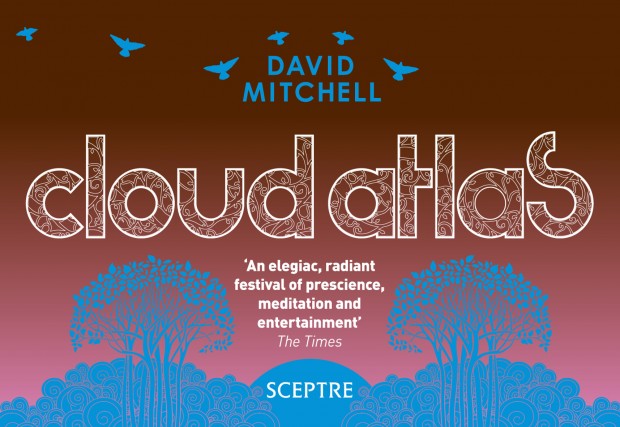The Gist:
A dystopian text beginning in the 1850s and thus becoming a deep exploration and understanding of how the actions from the past impact one another and continue to affix the present and future.
The Review:
In simpler terms, the idea of reincarnation plays a thought provoking, symbolic retribution throughout as one soul is reshaped from good to bad and how little acts of kindness can blow up to inspire for future revelation.
Consisting of six stories which all connect in two parts, taking the reader from 19th C South Pacific to the harrowing post-apocalyptic future, Cloud Atlas reveals the complexity of connecting each character to the future, be it reincarnation, Deja-vu as the characters find an items that play such a symbolic role throughout the novels (and a great way to keep us on track as well as nostalgic) they are then unravelling a vital piece of history. David Mitchell successfully captures how the story unfolds over time, workings towards the post-apocalyptic scene and the class struggles.
The Wachowski siblings brought David Mitchell’s novel to screen in 2012, thus prompting a theatrical revolution in performance told in such an unconventional and daring ways that sheds a light on the book to film adaptation generation.
But I wouldn’t let this complexity throw you off, the scenes are so in depth and you really feel alienated from a world but for me that’s the beauty of good story telling, I haven’t come across a novel with such ambiguous story telling, think of this as a play, whatever has started will finish on a high (or low) note.
The Verdict:
Indeed, “Our lives are not our own. We are bound to others, past and present, and by each crime and every kindness, we birth our future.” As complex, I found Cloud Atlas to be such an underrated piece of art. From what we gather, from the beginning especially, the idea of freedom and emancipation co-exists and the problems begin, the second part or in fact the future shows how these problems are resolved.
I guess you could say it’s a form of the future taking lessons from the past.
Released: 1st January 2004
Publisher: Sceptre



















No Comments